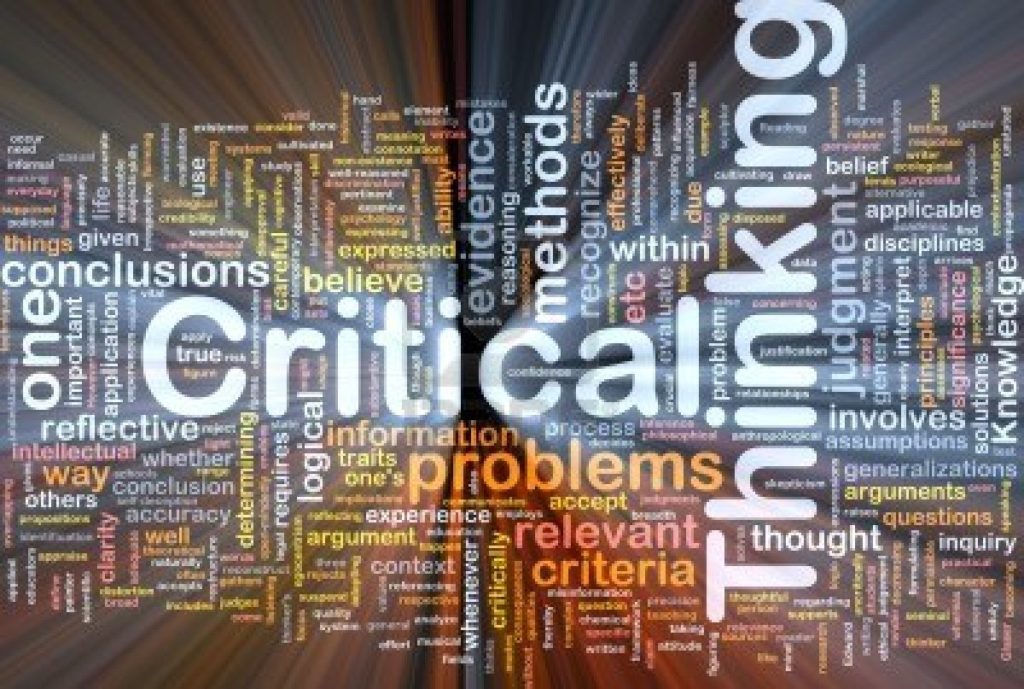
6 Critical Thinking Skills
What is Critical Thinking?
Critical thinking is defined as active use of a person’s reasoning ability to identify and analyze arguments, ideas and situations to reach rational conclusions or decisions. Critical thinking also involves developing reliable evaluations before believing something.
Critical thinking is the process of synthesizing gathered information to decide on a course of action. About.com argues that in order to think critically, a person should be open minded and able to differentiate between reason and emotion. The process involves reflective thinking, problem solving, and arguing from knowledge or evidence. Successful critical thinking requires skills such as observation, evaluation, analysis, interpretation and inference, and it has a place in all academic disciplines and professional fields.[1]
Writer Will Erstad states that even if you want to be a better critical thinker, it’s hard to improve upon something you can’t define. Critical thinking is the analysis of an issue or situation and the facts, data or evidence related to it. Ideally, critical thinking is to be done objectively—meaning without influence from personal feelings, opinions or biases—and it focuses solely on factual information.[2]
Skills Needed
There is no set standard of skills in which to develop to become a better Critical Thinker. It really depends upon the circumstances of the moment and the author you choose to listen to at the moment. Erstad seems to offer a fair appraisal of what a Critical Thinkers skill set would look like. Here are 6 skills to work on.
- Identify the situation or problem and the factors that are influencing this issue. Ask Who is doing what? What seems to be the reason for this action? What is the end result or how could this change?
- Research the issue to learn the competing arguments of PRO and CON in the debate to gain context in the moment.
- Identify biases that exists. Who does this benefit? Who suffers as a result of this action? What is the agenda behind this information? What is the language pattern of the debate? Am I being swayed to an alt-position or am I being led to truth?
- What inference(s) are you drawing as a result of the data set in front of you? What is being presented as important truth may in fact turn out to be secondary truth.
- Determine the relevance of this issue. Am I attempting to solve a problem or am I observing a trend? What does this mean to me at this moment and what action should I take or deny?
- Productive Curiosity can be healthy if the end goal is change. If not it is a rabbit-hole!
Shepherds Advantage provides Servant Leadership that helps people close the gap between where they are and where they want to be. Shepherds Advantage closes that gap by providing Leadership Development, Key Note Speaking, and Executive Coaching.
[1] https://www.reference.com/article/critical-thinking-5d6322f29d4d4b09?aq=understanding+critical+thinking&qo=cdpArticlesACCESSED 18, June 2020.
[2] Will Erstad. 6 Critical Thinking Skills You Need To Master Now. Rasmussen College January 1, 2018.
Please note: I reserve the right to delete comments that are offensive or off-topic.